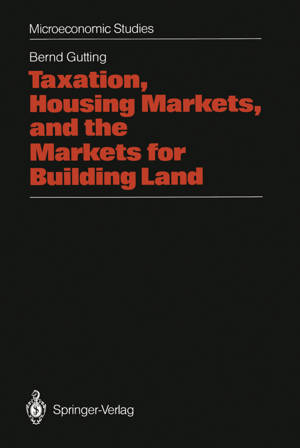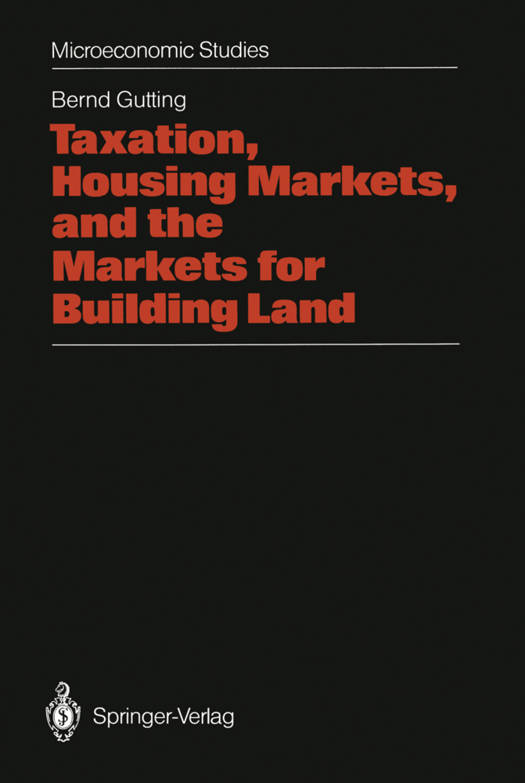
Bedankt voor het vertrouwen het afgelopen jaar! Om jou te bedanken bieden we GRATIS verzending (in België) aan op alles gedurende de hele maand januari.
- Afhalen na 1 uur in een winkel met voorraad
- In januari gratis thuislevering in België
- Ruim aanbod met 7 miljoen producten
Bedankt voor het vertrouwen het afgelopen jaar! Om jou te bedanken bieden we GRATIS verzending (in België) aan op alles gedurende de hele maand januari.
- Afhalen na 1 uur in een winkel met voorraad
- In januari gratis thuislevering in België
- Ruim aanbod met 7 miljoen producten
Zoeken
Taxation, Housing Markets, and the Markets for Building Land
An Intertemporal Analysis
Universit at Hildesheim
€ 118,79
+ 237 punten
Omschrijving
Almost everywhere in the world housing policies play an important role in government programs. Especially in the industrialized Western economies housing policy issues are triggered mainly by two developments: growing population density and increasing environmental pollution enforce a systematic planning of regional and urban development; all social groups want to participate in the increasing welfare of the domestic economies; until today housing policy is considered an appropriate tool for redistribution and social policy. Taxation serves as an important instrument for the realization of the political objectives mentioned above. Surprisingly, there exists wide-spread consent (even on the academic side) on the effectivity of this instrument. However, strictly speaking this consent concerns only the short run. Long-term effects are usually ignored. Therefore, there is always the inherent risk in these policies that (supposed) market inefficiencies will not be cured, but merely carried forward, and possibly amplified. Moreover, it is characteristic for the political discussion that there is no consistent notion of what efficient housing and land markets ought to look like. Generally accepted for example, is the position that land speculation should be fought whereever possible. Hardly anyone asks the question whether the holding of building land will be beneficial to the economy as a whole, and not only to the speculant.
Specificaties
Betrokkenen
- Auteur(s):
- Uitgeverij:
Inhoud
- Aantal bladzijden:
- 138
- Taal:
- Engels
- Reeks:
Eigenschappen
- Productcode (EAN):
- 9783642456329
- Verschijningsdatum:
- 28/02/2012
- Uitvoering:
- Paperback
- Formaat:
- Trade paperback (VS)
- Afmetingen:
- 170 mm x 244 mm
- Gewicht:
- 244 g

Alleen bij Standaard Boekhandel
+ 237 punten op je klantenkaart van Standaard Boekhandel
Beoordelingen
We publiceren alleen reviews die voldoen aan de voorwaarden voor reviews. Bekijk onze voorwaarden voor reviews.









